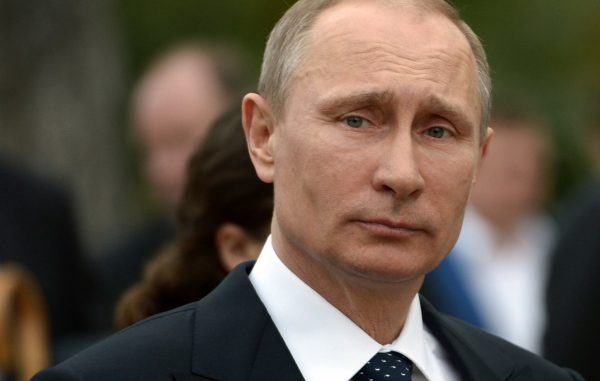
Vladimir Putin is facing the greatest threat to his authority in two decades after the head of the Wagner paramilitary group launched an apparent insurrection, claimed control of military facilities in two Russian cities, and warned that his troops would head for Moscow.
Staring down a sudden and staggering escalation of internal tensions that have simmered for months, the Russian president said on Saturday that those on “path of treason” or armed rebellion would be punished.
“It is a stab in the back of our country and our people,” he said in an address to the nation, threatening a harsh response for those planning “an armed rebellion.”
Putin was speaking after the militia chief and once-time ally Yevgeny Prigozhin dramatically stepped up his feud with Moscow’s security establishment over the handling of the invasion of Ukraine, throwing the country into crisis with a series of military moves that seemingly took Moscow by surprise.
After Putin’s speech, Prigozhin said on Telegram that the president was “deeply mistaken.”
“We are patriots of our Motherland, we fought and are fighting,” he said in audio messages. “And no one is going to turn themselves in at the request of the president, the FSB or anyone else.”
Prigozhin, who heads private military group Wagner, said his forces had taken control of Russian military facilities in the city of Rostov-on-Don, an important operations base for Russia’s war in Ukraine. He threatened to march on Moscow if defense minister Sergei Shoigu and Russia’s top general Valery Gerasimov did not meet with him in Rostov.
The Wagner group also claimed to have seized Russian facilities in a second city, Voronezh, some 600 kilometers (372 miles) to the north of Rostov-on-Don. The governor of the Voronezh region, Alexander Gusev, said the Russian military were engaging in “combat measures” in the area.
In its daily intelligence update, Britain’s Ministry of Defense said Prigozhin’s insurrection “represents the most significant challenge to the Russian state in recent times.”
The briefing said some Russian forces had “likely remained passive, acquiescing to Wagner.”
And it predicted that individual decisions to support or betray Putin could tip the balance of the showdown. “Over the coming hours, the loyalty of Russia’s security forces, and especially the Russian National Guard, will be key to how the crisis plays out,” the report said.
The developments leave Putin’s grip on power looking suddenly perilous, 16 months after he launched an invasion of his neighboring state that has been beset by military setbacks, strategic failure and disorganization.
In his remarks, Putin described events in Rostov as an insurrection. “The situation in Rostov-on-Don remains difficult during the armed uprising. In Rostov, the work of civil and military administration is basically blocked,” Putin said, adding that “decisive action” would be taken.
Prigozhin has been notoriously critical of the Russian military hierarchy since the war in Ukraine started. But he had spared Putin from direct criticism, instead directing his ire towards the President’s commanders.
The military chief seemingly built influence with with Putin over the course of the conflict, with his Wagner forces taking a leading role in the labored but ultimately successful assault on Bakhmut earlier this year.
But his rhetoric on Saturday indicated that Prigozhin had turned not merely against the military leadership handling invasion of Ukraine, but also on the longtime Russian leader. “When we were told that we were at war with Ukraine, we went and fought. But it turned out that ammunition, weapons, all the money that was allocated is also being stolen, and the bureaucrats are sitting [idly], saving it for themselves, just for the occasion that happened today, when someone [is] marching to Moscow,” Prigozhin said in his Saturday Telegram messages.
An overnight assault
This dramatic escalation came after Prigozhin accused Russian forces of striking a Wagner military camp and killing “a huge amount” of his fighters – a claim Russia’s Ministry of Defense has denied and called an “informational provocation.”
The militia chief, whose forces have played a key role in Russia’s invasion of Ukraine, warned of retribution in a series of Telegram messages Friday and Saturday, where he announced his forces were moving into the Rostov region neighboring Russian-occupied Ukraine, ready to “destroy everything” in their way.
“There are 25,000 of us and we are going to find out why there is such chaos in the country. There are 25,000 of us waiting as a tactical reserve and a strategic reserve. It’s the whole army and the whole country, everyone who wants to, join us. We must end this debacle,” he said, in a radical escalation of a longstanding feud with Russia’s military leaders.
Russia’s domestic intelligence service, Federal Security Service (FSB), responded on Friday, urging Wagner fighters to detain their leader and opening a criminal case against the militia boss accusing him of “calling for an armed rebellion.” Authorities in the capital Moscow, meanwhile, tightened its security measures.
